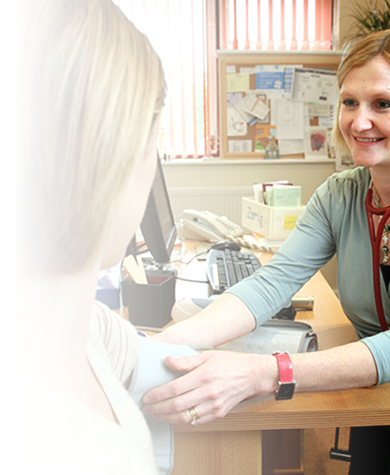Long-Acting Reversible Contraception Overview course for GPs



This session addresses the long-acting reversible methods of contraception, including their effectiveness, thus ensuring knowledge of how to access these methods of contraception for our patients.
This session was reviewed by Khyati Bakhai and last updated in November 2019.
Learning Objectives
By the end of this session you will be able to:
- Describe the long-acting reversible contraceptives (LARCs)
- State the effectiveness of LARCs and how they work
- Explain the factors that can make LARCs unsafe
- Explain what a patient needs to know to enable them to make an informed decision to use a LARC
- Explain who LARCs can/should be offered to and why
In July 2019, The National Institute for Health and Clinical Excellence (NICE) updated their 2005 guidelines for the use of long-acting reversible contraceptives (LARCs). The guidelines state that LARCs are the most cost-effective methods of contraception and advocates their increased use. Importantly, LARCs are also the most effective methods in clinical practice.
Before commencing this session you should complete sessions:
- Sexual Health: Indicators of Risk (400-0143)
- Sexual History Taking in the General Practice Context (400-0144)
- The Sexual History - The Partner History (400-0145)
Alison has worked as a GP in Birmingham since graduating from the city's in 1986.
She has a special interest in contraception and sexual health and training and facilitates both the contraception unit of the Postgraduate Award in Sexual Health (Warwick University) and Birmingham’s SHIP (Sexual Health in Practice) programme.


Dr Philippa Matthews (MBBS, FRCGP) is currently Primary Care Development Lead at the Africa Centre in KwaZulu Natal, South Africa, working with a population with the highest prevalence of HIV in the world. Prior to this she was a GP in Kings Cross, London, and Sexual Health Clinical Lead for Islington.
She has developed and delivered sexual health training and written extensively about sexual health services in primary care, most recently authoring MEDFASH’s new HIV Testing in Practice (HIV TIPs) webtool to support GPs and practice nurses to increase HIV testing in this area.
- Mental Health Promotion in the Perinatal Period co...
- Posted By eIntegrity Healthcare e-Learning
- Posted Date: 2024-11-02
- Location:Online
- This session aims to raise awareness regarding the factors that predispose women to mental ill healt...
- Epilepsy in People with Learning Disabilities cour...
- Posted By eIntegrity Healthcare e-Learning
- Posted Date: 2024-11-01
- Location:Online
- This session describes how to provide a high standard of care to patients with learning disabilities...
- Screening Programmes Part 2: Antenatal and Newborn...
- Posted By eIntegrity Healthcare e-Learning
- Posted Date: 2024-11-01
- Location:Online
- This session describes and discusses the NHS Fetal Anomaly Screening Programme, the NHS Newborn and ...
- Screening Programmes Part 1: Pregnancy and Newborn...
- Posted By eIntegrity Healthcare e-Learning
- Posted Date: 2024-11-01
- Location:Online
- This session will describe and discuss the following three NHS antenatal and newborn screening progr...
- Ensuring Quality: Role of the UK NSC, Policy Devel...
- Posted By eIntegrity Healthcare e-Learning
- Posted Date: 2024-11-01
- Location:Online
- This sessions offers you an understanding of how screening programmes are chosen and how their quali...






